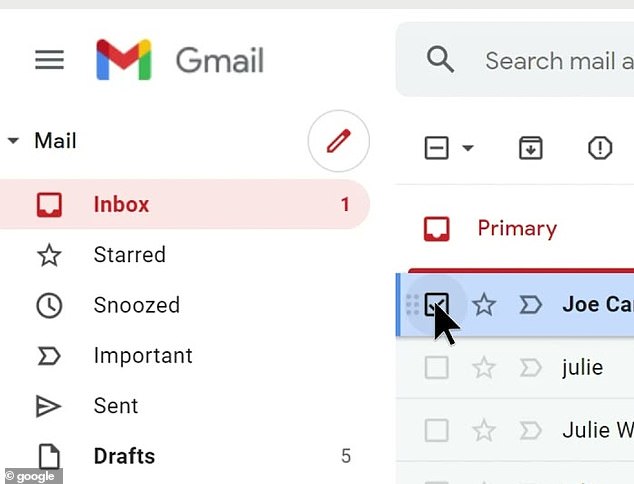A young family lost $40,000 after scammers tricked them into transferring their house deposit just days after purchasing their dream home.
Christine and David Rose, a Brisbane couple, spent seven years working hard to save enough money to buy a house for themselves and their four children.
However, a few days after affixing the “sold” sticker to the house’s for-sale sign, the couple became the target of a cruel scam.
A clever scammer hacked into the email thread between them and the law firm tasked with settling the sale.
Ms. Rose explained that the emails appeared legitimate and even used identical email signatures and letterhead from her attorney’s email address.
The scammer informed Ms Rose of the latest deposit payment on her house and instructed her to transfer $40,000 to the account details provided.
Just a few days after transferring the money, Ms. Rose realized she had not been dealing with her lawyer and that the account was fraudulent.
“I don’t know how the scammers were able to impersonate our lawyer and join the email chain,” Ms Rose told 4BC Brisbane.
Brisbane couple Christine and David Rose (pictured with two of their children) were tricked into sending $40,000 to scammers after someone sent them an email posing as their conveyancing solicitor.
“It was absolutely heartbreaking. It’s incredible, we feel extremely violated.”
He added the scammer’s account was local and was opened at a branch in Brisbane.
Mrs Rose said the couple had to borrow another $40,000 to secure the house as their bank was only able to recover $3,000 sent to the scammers.
While they were able to borrow another $40,000, the additional loan was going to have “serious financial impacts.”
The couple, married for 13 years, have six children between them, four of whom still live at home.
To add to their stress, the rental property they currently live in has been put up for sale and their lease expires in three weeks.
Mrs Rose described her husband as an “absolute disaster”, who struggled to even talk about the ordeal.
To seek support, the family has started a GoFundMe Campaign to raise money to cover financial losses caused by the scam.
At the time of writing, GoFundMe had received 49 donations totaling $8,565 and was aiming to raise $40,000.
The couple reported the scam to their bank, ING, as well as the scammer’s bank, Commonwealth Bank, and the Queensland Police Cyber Crime Branch.

Hackers are increasingly targeting home buyers to scam them out of settlement funds.
Slater & Gordon Lawyers has been receiving an increasing number of inquiries from landlords who have fallen victim to similar scams.
“We have been approached by an increasing number of people who have unknowingly transferred large sums of money (many hundreds of thousands) in accordance with detailed instructions they received by email, supposedly from their carrier,” explained the lawyer for Slater & Gordon. Julijana Todorovic.
But, to their horror, they discovered that the email was from someone posing as their carrier.
They then discovered that the funds had not been transferred to the carrier’s trust account at all, but had instead gone directly to a malicious actor.
“While some bank customers get their bank to block transfers if the fraud is discovered in time, in other cases it is too late.”
Getting compensation after being a victim of a conveyancing scam is a long process, he explained.
Victims must provide evidence that the carrier’s poor cybersecurity allowed the scammer to intercept emails.
Todorovic urged Australians to remain alert to scams and always verify payment information.
‘Re-check the email address on any payment instructions you receive from your carrier, and if the address differs from previous correspondence you received from them, you may be being scammed.
“It is also recommended that you take steps such as speaking to your carrier to check that the payment request is legitimate and that your bank details are correct before transferring funds to the designated account,” Ms Todorovic said.

